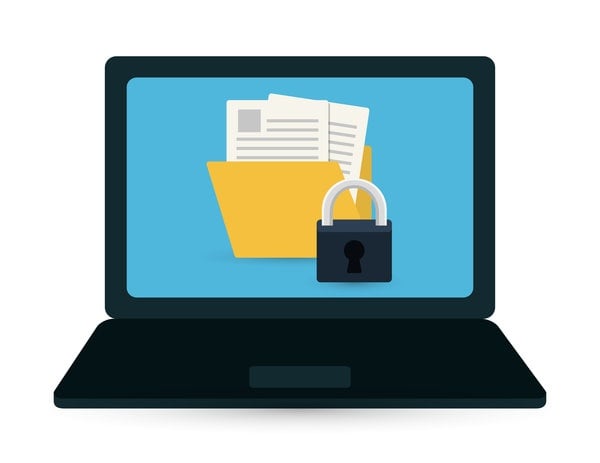Customer records serve as the foundation of the insurance industry. Whether it’s life insurance, auto insurance, homeowners or medical insurance, having accurate and secure data is critical. Insurance CSOs lose a lot of sleep worrying about how to protect customer records. By necessity, insurance records have to be more comprehensive with more personal, sensitive information, and the insurance industry is heavily regulated, which means protecting customer records is a primary concern.
Many CSOs adopt the attitude that the more tightly you control the security infrastructure, the less likely you will have a data breach. Unfortunately, managing your own data security can be like keep multiple plates spinning in the air – the minute you think you have everything under control, a new problem arises that brings everything crashing down. An experienced managed IT service company can remove much of that security stress and help you troubleshoot and secure customer records without adding substantial operational overhead.
Here are some of the most common causes of security breaches and how effective insurance it support can help you protect customer information:
1. Keeping Too Much Data
Regulated businesses such as insurance tend to keep records for a long time, both to better serve customers and in case of an audit. However, as the amount of data grows, managing it becomes more complex. Sensitive files and customer records end up in odd places, stored on workstations or in forgotten archives.
One way to address this problem is to consolidate data offsite using a hosted data repository managed by an IT service provider. Cloud data storage is extensible, so no matter how much data you retain, it can be kept in a secure, elastic data repository so everything is in one location.
2. Inadequate Security Protocols
Business processes need to be secure so sensitive client data is protected at all times. That means adequate password protection and authentication and document handling procedures to make sure that only authorized personnel have access to sensitive data. Over time, even the best security procedures will break down as employees start taking shortcuts, sharing authentication credentials, and archiving sensitive files for easier access.
Working with an independent IT manager can help keep security protocols up to date. A third party will be able to identify problems more quickly than in-house IT professionals who are perhaps too familiar with the system and may not recognize the flaws. It’s also easier to enlist the assistance of an outside authority to act as the enforcer for security protocols.
3. Authentication and Encryption
Proper authentication and data encryption of customer files helps keep them secure, and authentication and encryption can be readily managed from the cloud. Even access controls can be centrally managed and enforced so only authenticated users can access sensitive files. And cloud computing systems can provide added security such as two-factor authentication.
4. Securing Mobile Data
Mobile users and mobile media need to be secured as well. More executives and professionals are using laptops, tablet, and handheld devices to access customer records. Those devices need to be encrypted and data protected in the event of loss or theft.
An IT management service can make it easier to provision and monitor mobile devices, including managing authentication and keeping anti-virus protection up to date. An IT service provider also can provide 24/7 service so on the event of a theft of loss devices can be tracked and hard drives wiped remotely.
5. Malware
Trojans and computer viruses are an ongoing security threat. Even the best anti-malware software needs continual maintenance and upgrades, and there are always new viruses proliferating on the web.
Having an IT management service makes it easier to keep up with virus and malware threats, and the service can remotely monitor the network for infections.
6. Cybercrime
The more sensitive the information you maintain in customer records, such as birthdates and social security numbers, the more valuable those records are to cybercriminals. Unfortunately, most criminal security breaches can go undetected for months, and often are uncovered by third-parties rather than the in-house IT department.
Retaining an IT management service that offers remote monitoring services gives you an around-the-clock watchdog that watches for suspicious network activity and unusual data traffic that could mean a cyberattack.
7. Regulatory Compliance
Government regulations such as HIPAA are concerned with the security of consumer records and the company’s ability to ensure sensitive customer data is adequately protected. An IT management service can be an invaluable resource for regulatory compliance. For example, securely storing customer records in the cloud using proper security measures and authentication will ensure compliance with most security regulations.
When it comes to securing customer data, there is no reason why you should have to try to cover all contingencies in-house. Finding the right IT management partner can relieve much of the burden of securing customer records, and in the long run using outside experts is more cost-effective and can be more secure than relying solely on in-house resources for security. When you find the right IT partner you will find they are both cost-effective and accountable when it comes to securing customer information.
What are some other reasons you can protect your customer insurance information with managed IT?
{{cta(’98a85e8e-7b81-4309-a63d-be3750c78128′)}}
